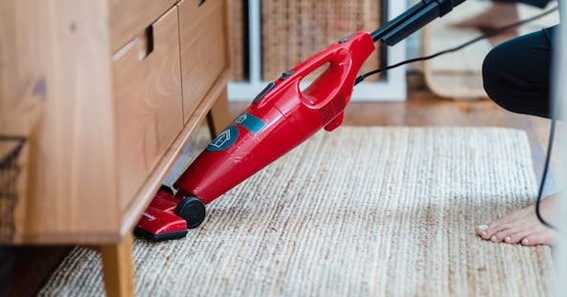Are you constantly sneezing or coughing in your own home? Do you have allergies or asthma that make it difficult to breathe and enjoy a peaceful environment? You might be surprised that the culprit could be right beneath your feet. That’s right. Your rugs could be contributing to your respiratory issues. But don’t worry; we’ve got you covered!
In this post, we’ll explore which rugs are best for people with allergies or asthma so that you can breathe easy and relax at home. Let’s get started!
Synthetic Materials
There are several types of outdoor rugs on the market, each with its benefits and drawbacks. When it comes to allergies or asthma, however, synthetic materials are often the best option.
These materials are less likely to harbor dust, pollen, and other allergens than natural materials like wool or cotton. They’re also easier to clean and durable, lasting longer.
If you’re looking for a hypoallergenic rug and easy to care for, synthetic materials are a great choice.
Click here – How come vegetarians consume eggs?
Wool Rugs
If you’re looking for a hypoallergenic rug that won’t trigger asthma or allergies, wool is a great option. Wool rugs are made from natural fibers, which means they’re free of harsh chemicals and dyes. They’re also incredibly durable, so you won’t have to worry about them wearing out quickly. Using colored woolen rugs can do wonders to your room decor. Cute light pink woollen rugs may do the job for your home.
Wool rugs can be a bit more expensive than other types of rugs, but they’re worth the investment if you suffer from allergies or asthma. Plus, they’ll last for years and years, so you won’t have to keep replacing them.
Low Pile Carpets
There are many types of carpets, but low-pile carpets are often the best choice for people with allergies or asthma. Low-pile carpets have shorter fibers that don’t trap as much dust, pollen, and other allergens. They’re also easier to vacuum and keep clean.
If you suffer from allergies or asthma, choosing a carpet that won’t worsen your symptoms is important. Low-pile carpets are a great option because they don’t trap as much dust, pollen, and other allergens. They’re also easier to vacuum and keep clean. Not sure which type of carpet is right for you? Talk to your doctor or an allergist to get expert advice.
How To Vacuum And Clean Your Rug Properly
Vacuuming and cleaning your rug properly is important for reducing allergens and keeping your home clean. Here are some tips on how to vacuum and clean your mattress and rug:
- Use a vacuum with a HEPA filter to reduce allergens.
- Vacuum regularly, at least once a week.
- Spot clean spills immediately.
- Use a mild soap and water solution to clean the entire rug.
- Rinse the rug thoroughly after cleaning.
- Let the rug dry completely before vacuuming again.
Click here – What Are STDs and How It Can Affect Your Mental Health?
Other Types Of Allergy-Friendly Flooring Other Than Rugs
There are several other types of flooring that can be good choices for people with allergies or asthma. These include:
- Hardwood floors – Hardwood floors can be a good choice for people with allergies or asthma because they don’t collect dust and other allergens like carpet does. However, they can be difficult to keep clean if you have pets or children.
- Linoleum or vinyl floors – Linoleum and vinyl floors are easy to clean and don’t collect dust, and other allergens like carpet does. However, they can be slippery and may not be as comfortable to walk on as other flooring types.
- Tile floors – Tile floors are easy to clean and don’t collect dust or other allergens like carpet. They can also be cool to the touch, which can be a nice feature in warm climates. However, tile floors can be hard on your feet and may not be as comfortable to walk on as other flooring types.
Conclusion
Finding the right rug for your home is essential if you suffer from allergies or asthma. Natural fiber rugs such as wool, cotton, and jute are ideal options that are hypoallergenic and breathable, making them an allergy-friendly choice. Synthetic fibers like polyester, nylon, and rayon can also be great choices since they don’t trap dust or other allergens as easily. No matter which rug you choose, it is important to vacuum regularly to keep any irritants at bay.

